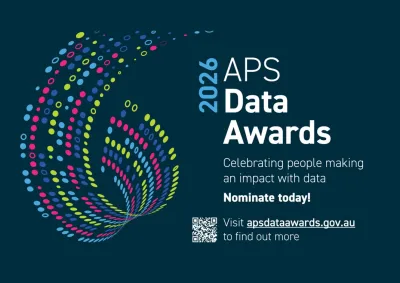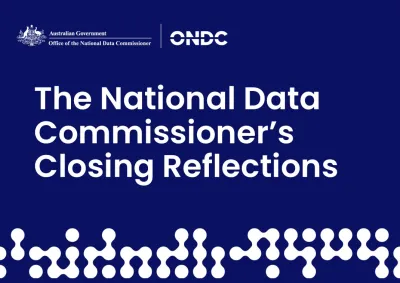Data Users
For those wanting to request, access and use data
Last updated
Jump to:
Find data on the Australian Government Data Catalogue
The Australian Government Data Catalogue enables data users to discover data held by Australian Government agencies. As a core component of the Data and Digital Government Strategy, it promotes greater transparency and use of public sector data.
Requesting Australian Government data
What is Australian Government data?
Who can request data from the Australian Government?
All organisations can make a request to access Australian Government data through Dataplace.
Who can make a data request under the DATA Scheme?
Australian, state and territory government bodies and Australian Universities can request Australian Government data under the DATA Scheme once they have become accredited.
Already accredited?
Not accredited?
Top resources for data users
Latest news

News
Celebrate data-driven initiatives across the Australian Public Service. Nominations are open for the APS Data Awards 2026.

News
After over three years as the National Data Commissioner, Gayle Milnes is standing down from the role and retiring from the Australian Public Service on 22 August 2025.

News
New data sharing agreements, recent accreditations, upcoming priorities for the Data Availability and Transparency Act review and more in the latest edition of DataPoints.



